OPA PROJECT IN BAHIA
Organization of Permaculture and Art
“OPA, non-profit organization that believes in the infusion of art and permaculture as means of creating skills and solutions towards a sustainable future, empowering people and their communities.
We value the strength of folkloric traditions, performing, and visual arts to educate, celebrate diversity and promote self-expression.
With a growing urban population, the connection to nature is being forgotten. An environmental problem today becomes a social problem tomorrow as a social problem today becomes an environmental problem tomorrow.
Looking at nature for solutions, OPA explores innovative permaculture models to be applied in the urban and rural settings."
We were performers, artists, activists, and creators pained by social injustice, participating in the quest for change. A bicultural group that had lived both in the USA and in Brazil. We had experienced the vividness and difficulties of life in Brazil and had been gifted with the luxuries and resources of the United States. We felt it was not only our dream but also our responsibility to weave the best of both worlds together to create living art that breaks social and economic barriers.
We purposed to use our talents in performing arts and permaculture to address the needs of Brazilian street children. We believe in the infusion of art and permaculture as means of creating skills and solutions towards a sustainable future, empowering individuals and their communities.
~aManda Greene & Isabela Coelho~
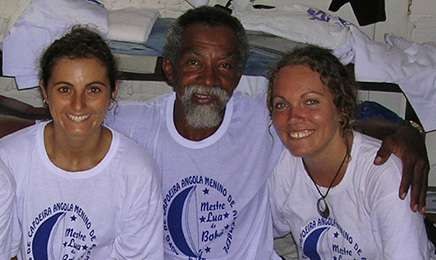
We intended to create awareness and awaken interest in this issue by involving street children in a spontaneous performance of circus acts and Physical Theater. We planned to employ our experience developing circus skills and self-expression with-at-risk youth in New Mexico to inspire life in an artistic way among the children living on the streets of Brazil.
Our choice of Brazil was based on our backgrounds and our exposure to the many needs of street children in that part of the world. For decades street children have been a major social, political, economic, and moral issue in Brazil. This project aimed to give street children a chance to create art, perform and express themselves.
Our approach consisted of using physical stilt walking, fire dancing, acrobatics, trapeze, juggling giant puppetry, and aerial arts to present our audience with a strong interactive performance.
We would get on stilts, bring out puppets and juggle to attract the children, and then invite them to join the show. We taught them basic skills and include them in our rehearsals. We would include the kid’s ideas and influences and encourage spontaneous audience participation. The storyline was simple and accessible to any audience independent of age or background.
This project also allowed the general public to interact with homeless children in a unique, out of context and different way. It also reached lower class populations that often do not have opportunities to go to theaters.
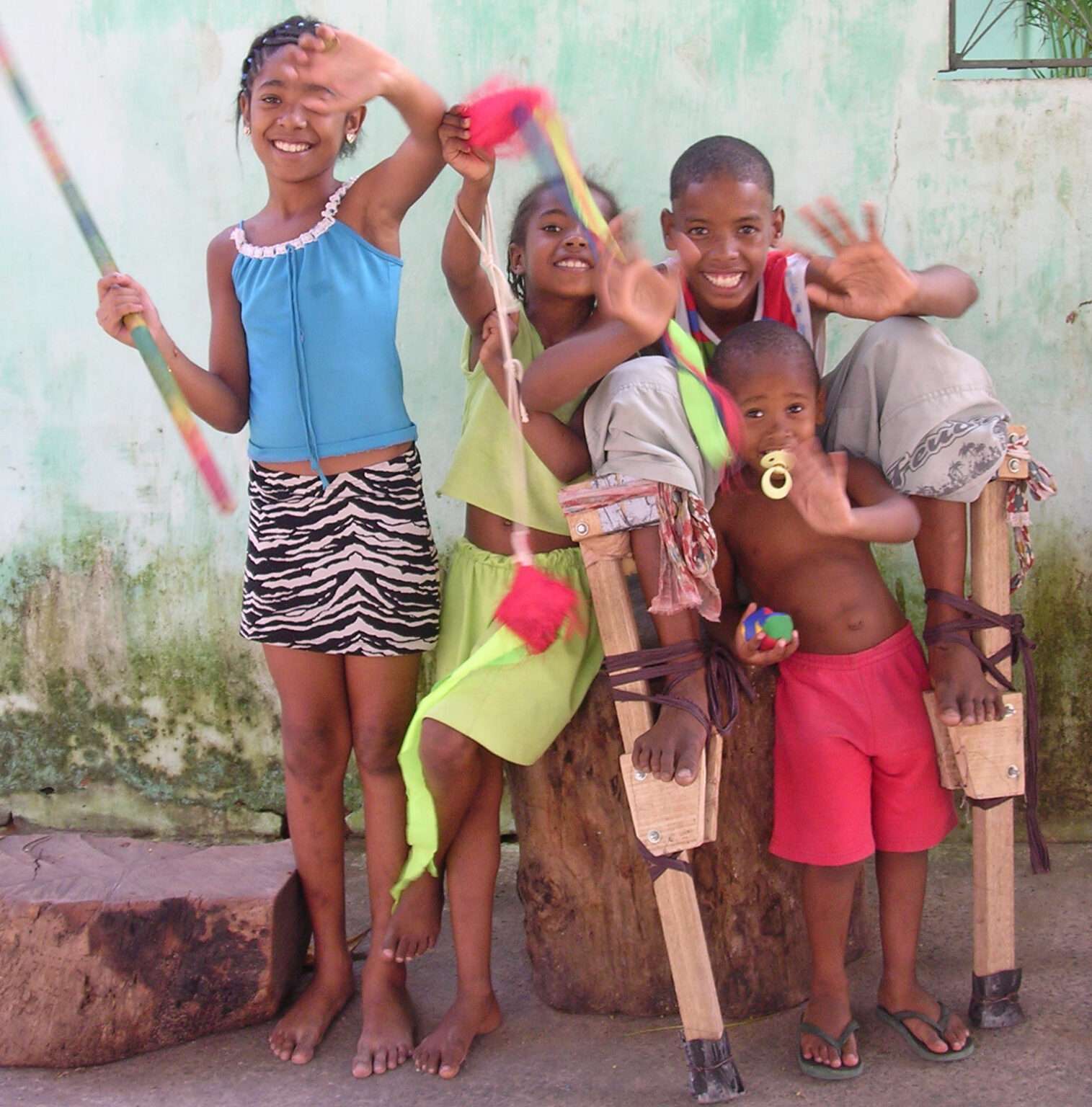
By involving the children in the performance, while teaching them about nature and the environment and recycling, they had a chance to put their energy into something positive and learn new and creative means of survival.
Our shows provided the street children with a chance to develop their voices and abilities as well as giving them a unique and empowering opportunity for self-expression.
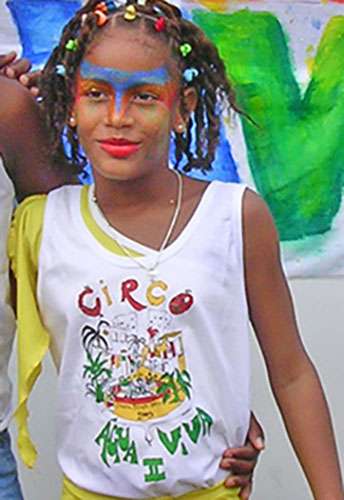
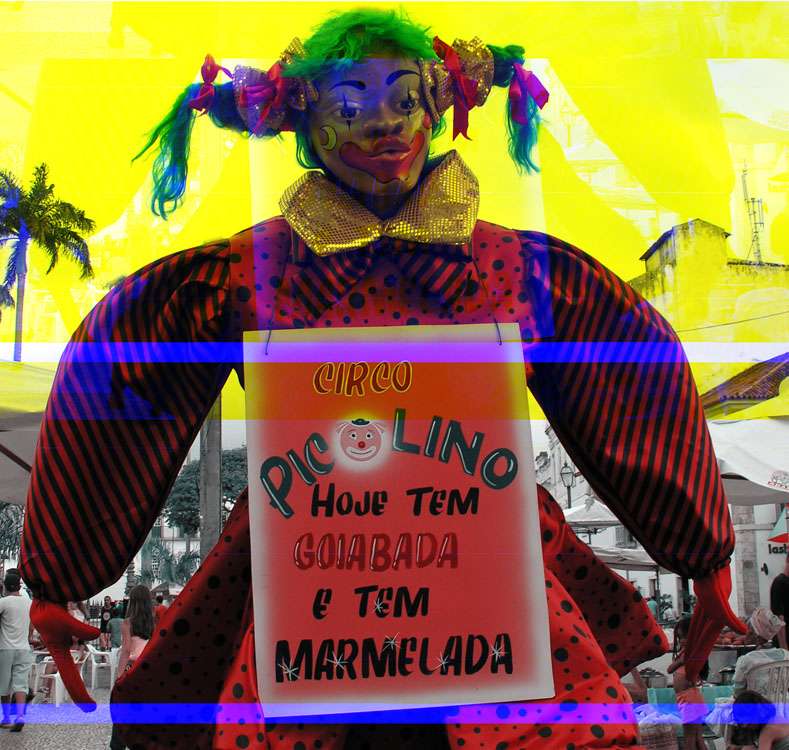
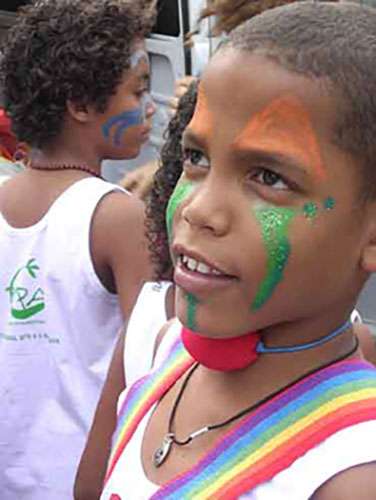
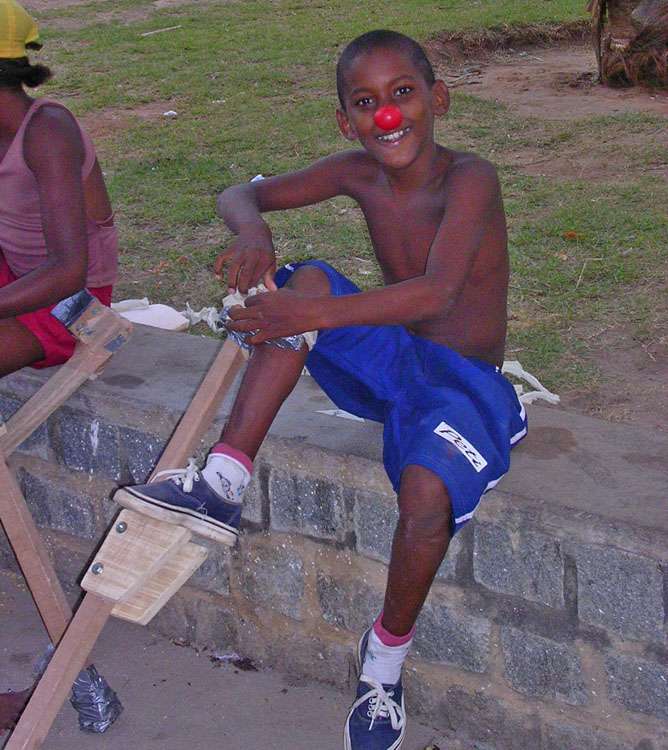
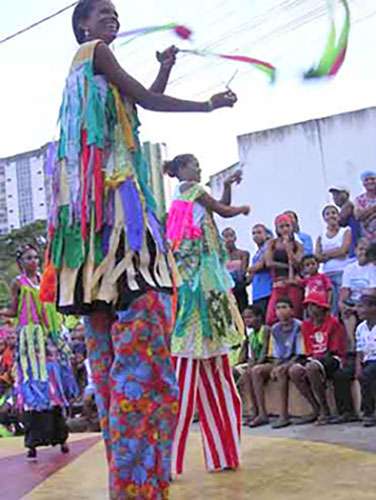
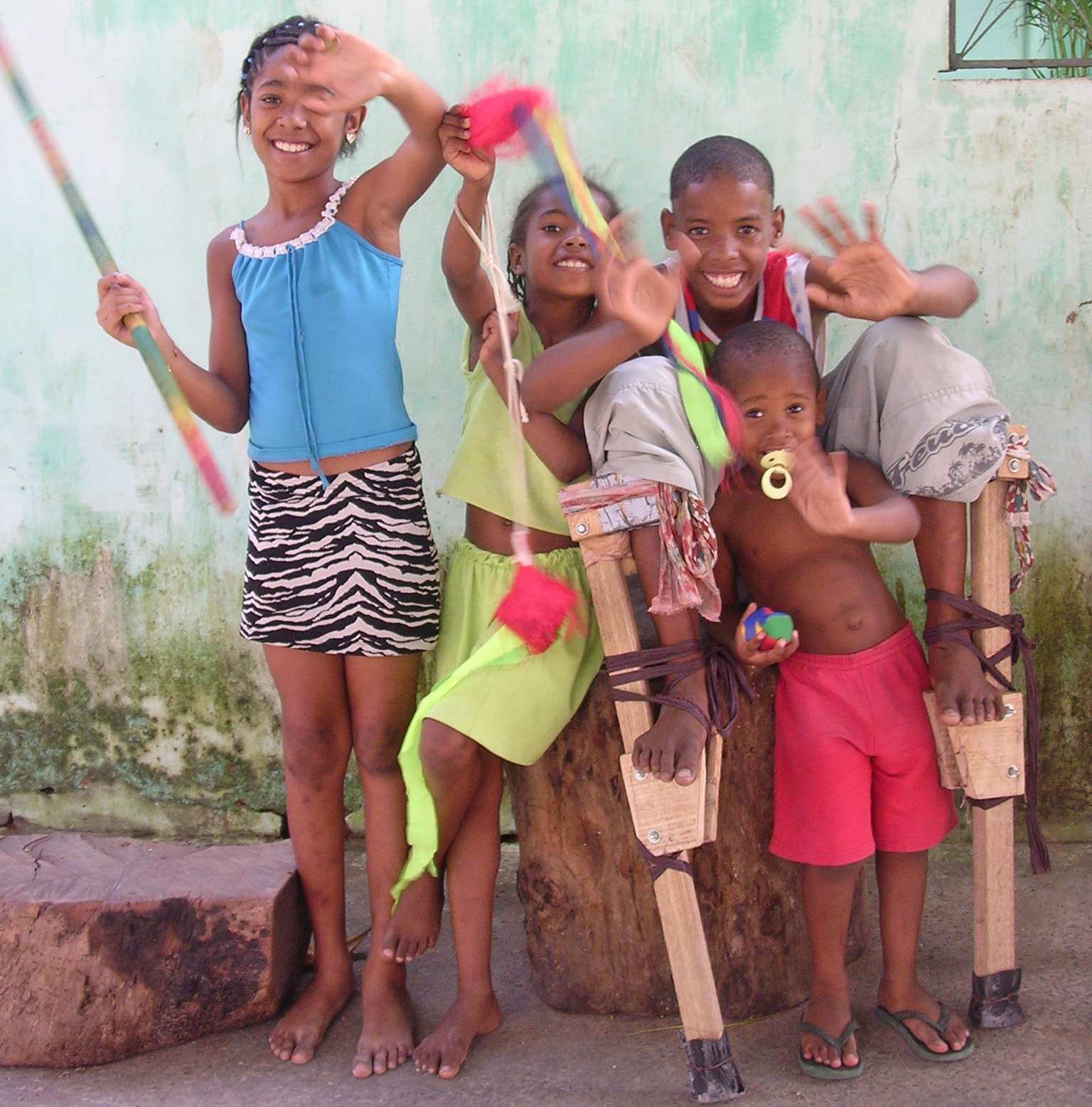
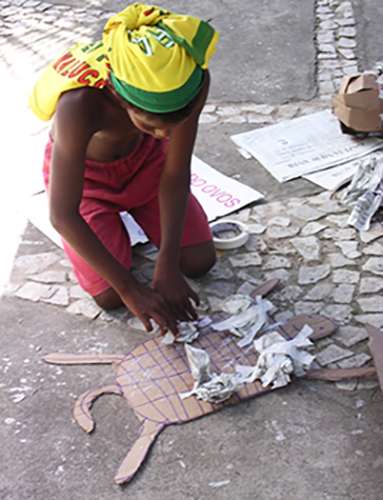
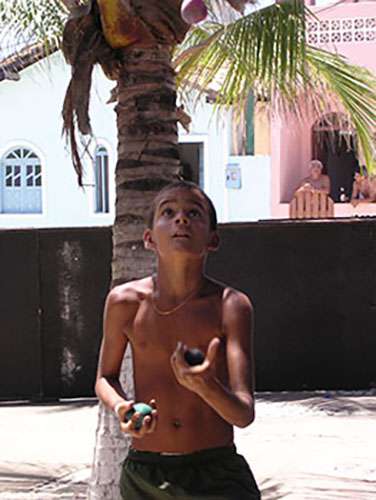
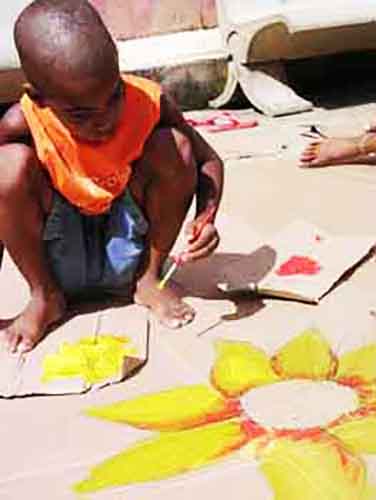
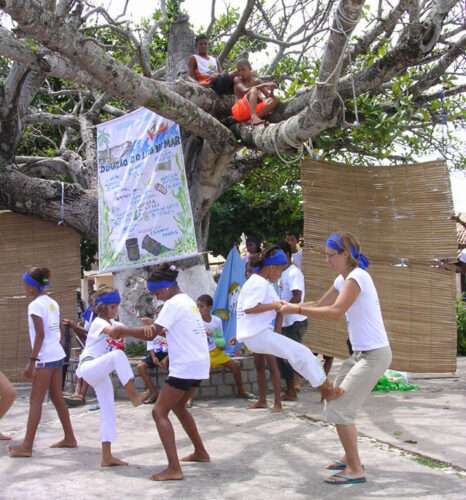
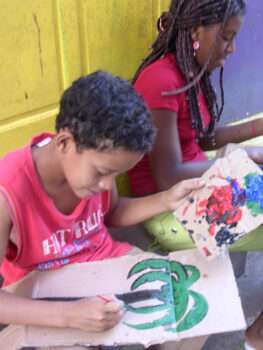
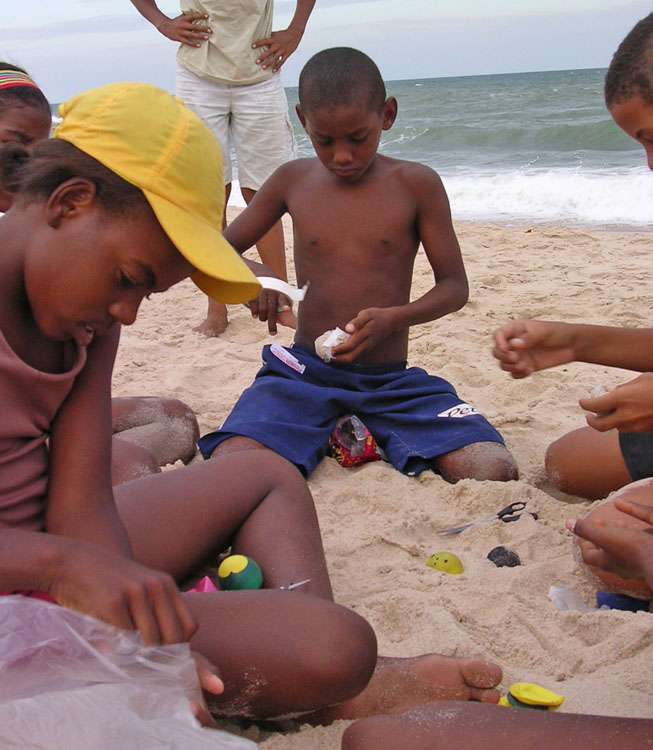
PROJECT LOCATION
Salvador, in the state of Bahia, Brazil, on the streets and in busy places where street kids usually hang out, such as plazas, bus stations, city centers, and pedestrian malls. We reached our audience with people that were going to work, meeting friends for lunch, catching the bus, and just going about their life.
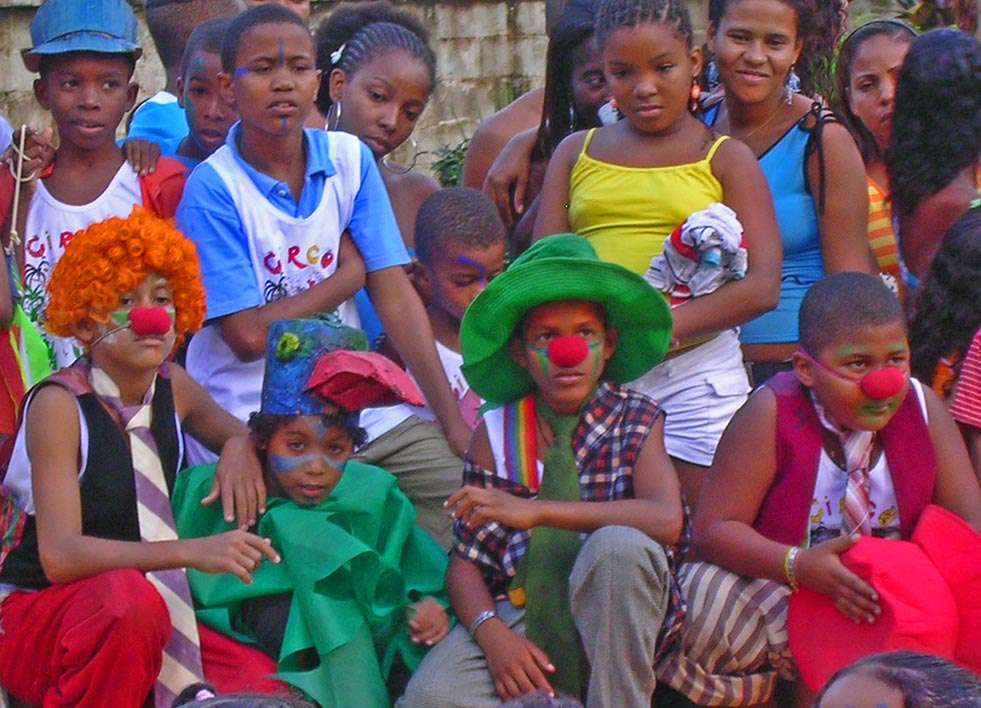
PROJECT TIMELINE
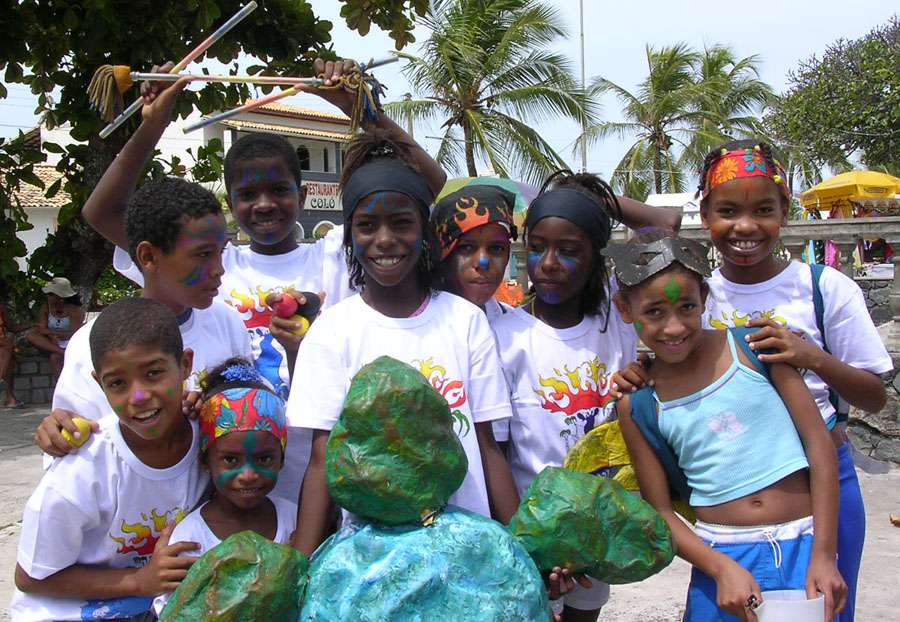
The planned project was accomplished over a three-month period: February, March, and April of 2004. All went as planned.
In the month of February, we spent rehearsing and preparing for the show by building props, puppets, costumes and set while doing further research of the reality of homeless children and their daily life in the specific community. Throughout March and April, we performed and took the show on the road. We would spend a week in each location working with local children for four days teaching basic skills and three days performing the show in strategic areas within the city.

OPA'S MISSION
* To create sustainable urban environments and the cultural paradigm that can support them.
* To empower individuals and their communities independent of race, gender, class, ability, sexual orientation, or political opinion.
* To educate, promote diversity and self-expression through performing and visual arts.
* To rescue and diffuse folkloric traditions.
* To bring art, happiness, education, and sustainable solutions into underprivileged communities.
* To explore innovative permaculture models and build skills towards a sustainable future.
OPA'S OBJECTIVES
URBAN PERMACULTURE
1) Demonstration
– Urban building – alternative building techniques for the urban environment.
– Renewable energy
– Water – rainwater collection & storage –
water tanks
– Sanitation – composting toilets
– Native plant nursery
– Urban gardening – food production
– Biodiesel car – small street oil collection
business
2) Education & Extension
– Permaculture courses
– Specialized component permaculture courses
– Children and Youth Computer Program
– Development of ecological education curriculum
– Biodiesel program
– Library and Publications
– English Language Program
IN THE ARTS
1) Circus Arts
– Skill building, empowerment, body awareness, and strengthening to children, youth, and adults. Activities include Trapeze, Aerial Fabric, Stilt-walking, Acrobatics, Juggling, Clowning, among others.
2) Folkloric Traditions
– To rescue folkloric traditions and pass them on to younger generations in order to strengthen and unite communities, to empower elders and celebrate life.
– Brazilian Folkloric Traditions include Capoeira, Maculele, Puxada de Rede, Maracatu, Bumba-meu-Boi, Ciranda, Cavalo Marinho, Frevo, Coco, Afoxe, among others.
3) Performing Arts
– OPA believes in the efficiency of passing on information along with visual stimulation, performing educational material accessible to all social classes.
– To reinject the creative spirit of young people into human experience. Activities include Festivals, Street Theater, and a Professional Theater Company.
4) Music
– To encourage and support musical groups and musicians in low-income communities. Education through music.
5) Visual Arts
– To challenge and sharpen the mind through creativity.
– Learn how to work in a group, to listen and be heard, to unify hands in order to build giant puppets / sculptures / paintings.
–To create urban murals with social / environmental themes.
– To support underprivileged children and youth’s creative endeavors.
– Art studio.
6) Craft making
– Value, learn and teach local crafts.
– Crafts market.
7) Ecological/Political/Social Art Education
– Environmental, social and political education through the arts.
WHAT IS PERMACULTURE?
“Permaculture is a holistic system of design, based on direct observation of nature, learning from traditional knowledge, and the findings of modern science. Embodying a philosophy of positive action and grassroots education, Permaculture aims to restructure society by returning control of resources for living: food, water, shelter, and the means of livelihood, to ordinary people in their communities, as the only antidote to centralized power.”
-Definition from “Permaculture Activist”
Partners
OPA Organization of Permaculture and Arts recognizes art as a vessel for social change and self-empowerment.
OPA respects the connections between human life and our abundant provider, PachaMama. We have found Permaculture and its’ sustainable philosophies to be the only logic in this often irrational world. Under the guidance of PAL Permacultura America Latina, we have made a choice to focus on the solutions rather than the difficulties of our society.
Located in the city of Salvador in Bahia, Brazil we have entered the belly of the beast to combat from within the wall of concrete oppression.
OPA sees no separation from the earth and her people, weaving the importance of environmental awareness with the social duty of those who are able.
Through awareness and education, OPA brings communities in touch with their environments and the (not always obvious) resources that are available.
The team is passing the gifts of stilts, acrobatics, juggling, puppetry, clowning, Afro dance as well as philosophies and practices of Permaculture. Involved in the process of creating a garden and herbal spiral the youth learn the importance and connection with the earth.
Learning the cycles of water and the long-term effects of trash and pollution children will be shown that we have options and choices and that we must reclaim the power that has been taken. “Returning to the wisdom of our ancestors with the respect to the reality of our times.” Which we believe to be the strongest tool for true change. With the ability of self-expression comes empowerment and thus begins the movement toward evolution.






